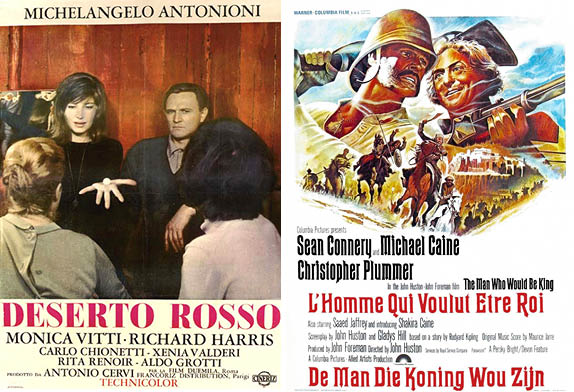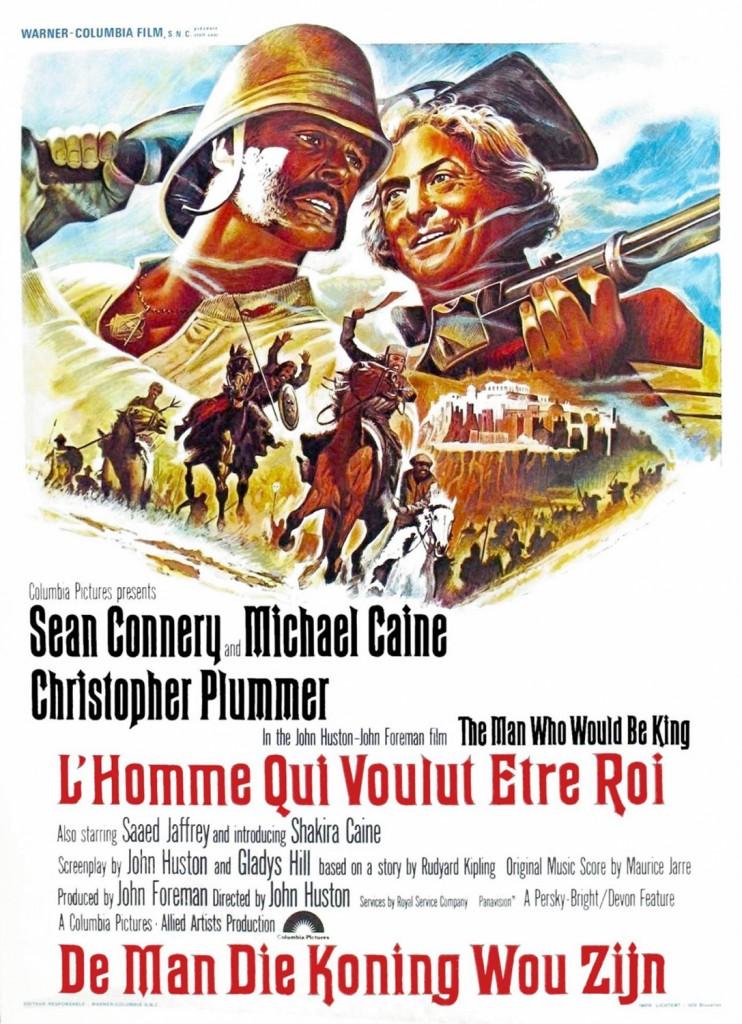Professors Screen Their Favorite Flicks
November 15, 2012
PROF PIX, the weekly series held by the visual arts department at Fordham College at Lincoln Center (FCLC), is above all, a chance for Fordham’s cinephile community to gather, eat free popcorn and watch a diverse array of classic films. Screenings so far have included Federico Fellini’s neo-surrealist masterpiece “8 1/2,” Paul Thomas Anderson’s “Magnolia,” and most recently, Michelangelo Antonioni’s “Deserto Rosso.”

The series is organized and developed by film professor Ross McLaren, who believes it is an opportunity for Fordham to develop a sense of community outside the classroom, bringing students and teachers together, bonded by their mutual appreciation of good film. Each screening is handpicked by a member of the visual arts department and is a reflection of their personal aesthetic and taste. While the films aren’t related thematically, McLaren asserts that each has a special meaning to the professor that chose them.
The screening of “Deserto Rosso” was no different. While professor Ruble, who picked the film, was unable to attend, McLaren has a personal relationship with the film, dating back 15 years.
“I was in Rome, at a beautiful theater on the Tiber River,” he said. “The theater was showing a reprint of ‘Deserto Rosso,’ which many believe to be Antonioni’s most important film. Before it started, a buzz started going through the crowd. I turn around and there was Antonioni himself. He was an old man at this point, but he still had a beautiful woman escorting him on each arm.”
The film was Antonioni’s first use of color, and his representations of industrial, Northern Italian landscapes are both harsh and beautiful. While the factories in one sense represent our collective desolation in the industrial age, Antonioni was able to find beauty in the smoke stacks, wastelands, and the people inhabiting them. The film revolves around a disenchanted woman named Giuliana, who struggles with her identity in the face of this changing world. “There is something wrong with reality,” she says. “I can’t figure it out and no one will tell me.”
“Deserto Rosso” is heavy and existential but fascinating, largely due to Antonioni’s incredible sense of composition as he depicts this bleak, industrial environment with nuance. In terms of narrative, well, there isn’t much of one, but it hardly matters. The subtle shifts in tone, the experimental editing and Antonioni’s grasp of the human condition are enough to keep you interested throughout its nearly two-hour duration.
In addition to screening “Deserto Rosso,” McLaren showed a short animated film, something he likes to do before all of the events. This week, he screened “Swiss Army Knife with Rats and Pigeons,” an animated short by experimental filmmaker Robert Breer. McLaren noted that Breer is probably his favorite animator and recalled their time teaching together at Cooper Union years ago. The film is rapid-paced and slightly disorienting, but captivating at the same time.
As for the PROF PIX series, McLaren hopes to spread the word, as ideally more and more students will become involved and engaged in the weekly screenings. The audience, according to McLaren, has been pretty small for all the screenings, but he believes if more people knew about it, more people would show up. The films being screened stand for themselves and the visual arts screening room is perfect for events like this.
“The iPhone is not a device to watch movies on,” McLaren said. “And yet that seems to be the trend these days. I like the feeling of sitting down in a dark theater and watching a film without any distractions or interference.”
Next week, McLaren will be screening “Monster,” a film he personally selected for the PROF PIX series. The film depicts a woman—played by Charlize Theron, who gained nearly 30 pounds and an Oscar for her performance—who is a former prostitute and a serial killer of men. “Monster” was directed by Patty Jenkins, a former student of McLaren’s at Cooper Union, and now a successful director in her own right. Describing Jenkins as a student, McLaren said, “I was teaching an experimental film class, but she was always hell bent on narratives. I think that comes through with this film and the rest of her work.”
On Nov. 29 they will be screening “The Man Who Would Be King,” directed by John Huston and starring Sean Connery and Michael Caine. McLaren also noted another upcoming film series, the Fordham Student Film/Video Festival, to be held on Dec. 6. While screening classic films is one thing, it is equally important to support the future of the craft, and this upcoming festival is an attempt to do just that.










